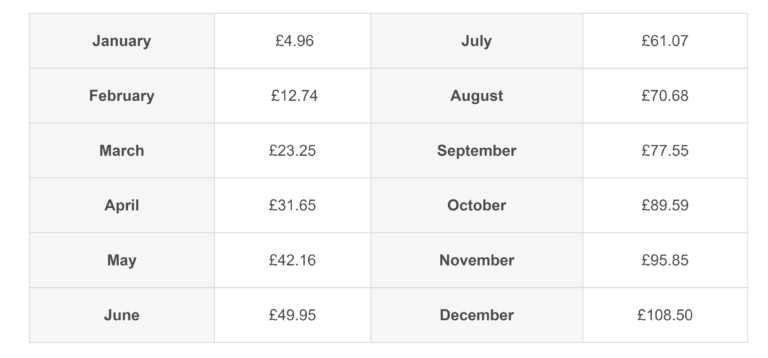I want to kick off this post by telling you a short story. I must have been around 11 years old, and my family and I were on holiday in North Cyprus, which is a relatively poor country. We had taken a hire car and on a remote mountain road in the middle of nowhere we had found a restaurant to grab a bite to eat.
We placed our order with the waiter and then he scurried off towards the kitchen. A moment later one of the members of staff was seen jumping into his car and speeding off down the dusty road.
A while later the guy returned with a big shopping bag in hand. It turns out whatever we had ordered they didn’t have in stock, but rather than just refusing the order – and sneering, “sorry we’re out of chips” – as they would in most UK restaurants, they bent over backwards to satisfy what was in their mind a wealthy customer. This is a perfect example of how those with money get treated better in life.
In this post we’re talking about some of the many ways money enhances your quality of life. Now, let’s check it out…
FYI: £50 cash bonuses and FREE stocks listed on the Offers Page.
Alternatively Watch The YouTube Video > > >
Money Makes You Live Longer
Is money the elixir of life that we’ve all been looking for? The richer you are, the longer you live – that is a fact. Data from the ONS shows that life expectancy at birth of males living in England’s most deprived areas was 74.1 years, whereas it was 83.5 years in the least deprived, a gap of 9.4 years. A different study found that the life expectancy gap between England’s richest and poorest neighbourhoods has widened since 2001.
Economists have warned of wealth inequality rising in Great Britain, so presumably the life expectancy between rich and poor will also continue to widen.
The wealthiest 10% of households owned 43% of all the wealth in Britain between April 2018 to March 2020, according to data from the ONS. In contrast, the entire bottom half of the population held only 9%.
But rich people don’t just live longer. They also get more healthy years. Wealthy men and women generally have eight to nine more years of “disability-free” life after age 50 than poor people do, according to a study of English and American adults.
The study analysed how well various factors including education, social class and wealth predicted how long a person would live before they could no longer carry out activities such as getting out of bed or cooking for themselves — the study’s definition of being “disability-free” and “healthy.”
Everything paled in comparison with wealth! Though education level and social class had some effect, neither was found to be nearly as significant as wealth.
You Are Not Ugly, You Are Just Poor

Money seems to possess a magical power that can make you better looking. Take these memes for example. Billionaire Jeff Bezos was a dorky nerd in the ‘90s. Fast-forward to 2017 and he looks more like the Terminator. A similar transformation appears to have happened to Elon Musk. Not only did he found PayPal, Space X, Tesla, and become a billionaire, he clearly has developed a hair growth formula.
Now, some of these extreme transformations might exaggerate the message. No doubt that these were probably the worst and best photos that could be found but even in more normal walks of life, it’s obvious that money can make you better looking and healthier.
In a Guardian article, the author wrote, “It’s simply harder to eat well when you are poor… healthy food is often prohibitively expensive, less healthy options are relatively as cheap as, well, chips. When parents have to find the cheapest food available for their family, it’s nearly always going to be less likely to be fresh; and more likely to be highly calorific (therefore “filling”).”
The next health advantage money buys is access to luxury gyms, health clubs, and personal trainers. None of this is required at all to maintain basic fitness but if you’ve got the money, it significantly helps. The extreme levels of fitness and good looks that most people can only dream of are not obtained by just a quick run round the block.
A personal trainer will push your limits, and crucially keep you motivated. According to PureGym, an average session of 45 minutes will cost up to £65. And a membership to a David Lloyd Gym will set you back over £1,000 a year.
You don’t even need to put in any hard work as long as you have the money. A good dentist can change your smile, swapping crooked gnashers for a set of poker straight, blindingly bright teeth. They don’t call it a ‘Hollywood smile’ for nothing
I had laser eye surgery several years ago, costing nearly £2,000, and the improvement to my life was amazing. I was tired of constantly having to put contacts in when I was doing sport or going out. I was about to travel to Southeast Asia and the thought of swimming, canoeing, and white water rafting while battling with contact lenses was the final straw. Without money, none of this is possible.
Wealth Gives You Options Now & In The Future
For us, a life feeling trapped is not an enjoyable one. Money gives you options. You can quit jobs, chase passions, enjoy hobbies, start businesses, retire early, travel, work part time, and so much more.
Without wealth, you need to constantly work to survive. Passive income is that annoying buzz word that is overused but the reality is that if you build assets that pay you without the need to put in your own time and sweat, you can free up your schedule. The passive income I have from rental properties means I’m never overly stressed about needing to work long hours.
Most of us spend about third of our lives at work, so working a job you hate is no way to live. Those people who have no money have no options.
If they have a nasty boss or the work is torture, there’s very little they can do. And as for starting a business, how is someone on the bread line ever meant to do this? It’s practically impossible. A business needs months, if not years to start turning a profit. A pile of cash gives you and your business the breathing space that is needed.
Even a little money can give you your independence. According to a study commissioned by the Debt Advisory Centre, nearly one in five people have remained in a romantic relationship because financial worries have prevented them from leaving.
Of those who have stayed in relationships for longer than they wanted to, one in five did so for up to three months but the majority stayed together for far longer. A shocking 24% of these respondents remained with their partners for more than three years after things went stale.
Moreover, a lack of good finances could make you dependent on the state, which is no way we would ever want to live. State benefits are always going to be measly and very few people would voluntarily choose to live on state handouts alone.
You might hope that the state pension would be more generous considering you have paid into the system all your life, but you’d be wrong. If you have a full National Insurance record you will only get a little over £9,000 a year. This is not enough to live on, so make sure you are building your own freedom fund, as we call it.
Live Worry Free
41% of Brits don’t have enough savings to live for a month without income, a third of Brits have less than £600 in savings, and 9% of Brits have no savings at all.
Worrying about money can make your mental health worse. Financial difficulties are a common cause of stress and anxiety, and stigma around debt can mean that people struggle to ask for help and may become isolated.
According to a recent American survey, 77% of people report feeling anxious about their financial situation. 58% feel that their finances control their lives, and 52% have difficulty controlling their money-related worries. They are most worried about their financial future with 68% worrying about not having enough money to retire.
Get Away With Murder
There seems to be a different set of rules for those with money. If what you hear is true, Wayne Rooney has had a string of affairs with prostitutes over the years, but Coleen Rooney has forgiven him saying she chose not to leave him partly for the sake of their boys. We’ll let you speculate what else convinced her not to give him the boot. Pun intended.
Back in 1995, OJ Simpson, American football star and actor, was acquitted of all criminal charges relating to the murders of his ex-wife, Nicole Brown Simpson, and her friend, Ron Goldman – even though he almost certainly did it.
OJ had so much money that he was able to put together an impeccable group of defence lawyers, who were nicknamed the Dream Team. It has been estimated that the defence cost Simpson somewhere between $3-6,000,000, the most costly murder defence expense to date.
It appears you can get away with murder: “as along as long as you’ve got the cash, to pay for Cochran”, as Good Charlotte once said. And just to caveat all this, we obviously do not condone any crime.
Invest In Your Future
We, as well as you guys reading, are probably a little different to the average person. Most people have a high time preference meaning they favour having stuff sooner rather than later. They want immediate gratification, whereas we as investors have a low time preference and often choose to delay gratification. We’ll sacrifice more now for a better tomorrow.
Investing in stocks, funds, property, and so on are all investments in your future. The more money you earn, the easier it is to invest more. However, there are many stories of ordinary people becoming millionaires by the time they retire simply by living below their means, investing in the stock market – often through a pension and an ISA – and being super patient.
Another way to invest in your future is by becoming educated. If you have some money behind you, you can invest in your education and learn new skills, which leads to better and more highly paid work. Unfortunately, so many people are firefighting just to pay their monthly bills that they have no money to reinvest in their education. How many books do you think the average person reads? We’re guessing not many, whereas 85% of wealthy people (including self-made millionaires) read two or more books per month. Bill Gates reads roughly 50 books per year.
Buy The Best Things
This point probably doesn’t need saying but money can buy you much better stuff. In some cases, it’s just perceived benefit, but many products and services are genuinely better. And in the case of safety equipment, it might save your life.
By way of example, consider braking distances of budget versus premium tyres. A recent test undertaken by Continental tyres showed that wet braking distance was over five metres longer when the vehicle was using budget tyres compared to premium tyres. Money spent on your car may save your life.
What You Need To Do
It’s evident that money is super important, so we all need to make sure we have plenty of it in our lives. This website is dedicated to helping you grow and invest your money, so make sure you’re subscribed. If you’re new to thinking about your future, make sure you’re putting as much money as you can into Pensions and Stocks & Shares ISAs, and continuously look for ways to save and earn more.
How would more money improve your life? Join the conversation in the comments below.
Featured image credit: Just dance/Shutterstock.com
Also check out the MoneyUnshackled YouTube channel, with new videos released every Wednesday and Saturday:





